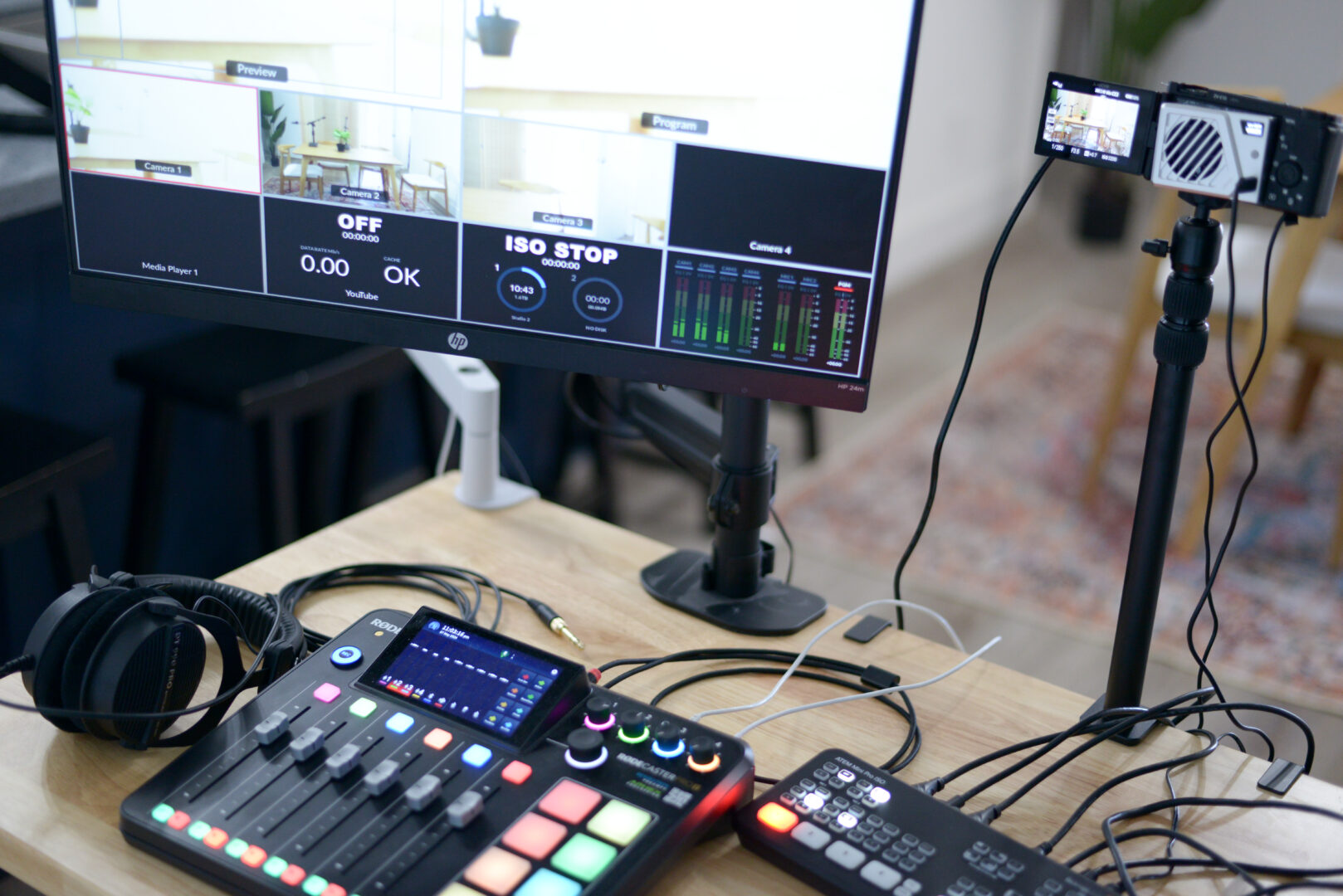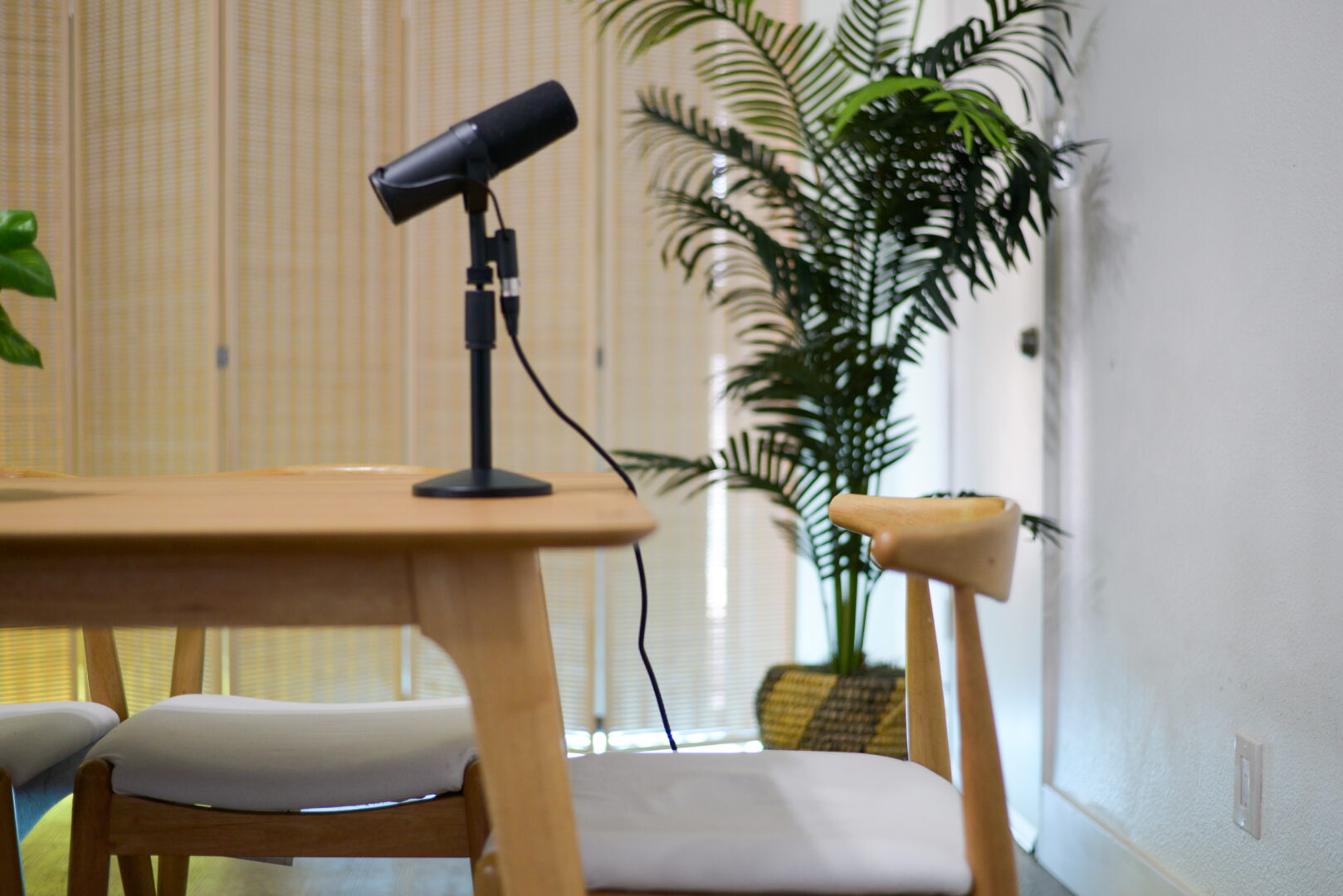Introduction
In today's digital landscape, podcasts have surged in popularity. Everyone wants to start one, but not everyone knows how to produce a quality show. That’s where our Podcast Studio in Arizona comes into play. With state-of-the-art equipment and expert guidance, we help aspiring podcasters create content that resonates with their audience.
Whether you're a novice or an experienced broadcaster looking to refine your craft, this article will provide you with essential tips and insights from professionals who live and breathe podcasting. Get ready to dive deep into the art of podcast production!

Podcast Production Tips from the Pros at Our Arizona Studio
When it comes to launching a podcast, having a solid foundation is crucial. Here are some tried-and-true tips that experts at our Podcast Studio in Arizona recommend.
1. Understand Your Audience
Who Are You Talking To?
Before hitting record, consider who your target audience is. What do they want to hear? What problems can you solve for them? Conduct surveys or engage with communities on social media to gather insights.
Creating Personas
Develop listener personas based on your findings. This will guide your content creation process and ensure that you’re speaking directly to your audience's interests.
2. Define Your Podcast’s Niche
Why Narrowing Down Matters
The podcast space is crowded; defining a niche Podcast Studio in Arizona helps you stand out. Whether it’s true crime, tech reviews, or lifestyle coaching, focus on what makes your perspective unique.
Finding Your Unique Angle
Don’t just focus on popular topics; think about what you can offer that others cannot. This could be personal anecdotes or expert interviews that align with your niche.
3. Invest in Quality Equipment
Essential Gear for Success
While starting with basic equipment is possible, investing in quality gear pays off in the long run. Key items include:
- A good microphone Headphones Audio interface Recording software (like Audacity or GarageBand)
Why Sound Quality Matters
Listeners are quick to abandon poorly produced shows. High-quality audio enhances credibility and keeps audiences engaged.

4. Craft a Compelling Script
Why Scripts Aren’t Just for Actors
Scripts help keep you on track during recording sessions while ensuring clear communication of ideas.
Balancing Structure with Spontaneity
While scripting is important, leaving room for spontaneous moments can lead to authentic conversations—especially in interviews.
5. Choose the Right Recording Environment
Setting Up Your Space
To minimize background noise and distractions, choose a quiet room or invest time in setting up soundproofing solutions within our professional Podcast Studio in Arizona.
Optimizing Acoustics
Soft furnishings can absorb sound reflections; using rugs, curtains, and cushions can make a world of difference in audio quality.

6. Editing Like a Pro
The Importance of Post-Production
Editing is where the magic happens! Cut out filler words like "um" and "uh," adjust audio levels, and remove any awkward pauses for smoother listening experiences.
Software Recommendations
Editing software such as Adobe Audition or Reaper can offer advanced features for those ready to delve deeper into audio manipulation.
7. Create Engaging Show Notes
What Are Show Notes?
Show notes summarize each episode and provide links to resources mentioned during the show.
SEO Benefits of Show Notes
Optimized show notes improve search engine visibility and give potential listeners an idea of what they'll gain from tuning in.
8. Leverage Social Media Marketing
Promoting Your Podcast Effectively
Utilize platforms like Instagram, Twitter, and Facebook to promote Podcast Studio episodes before they launch as well as post engaging content related to each episode afterward.
Building Community Engagement
Engagement doesn’t stop at posting; interact with followers by responding to comments and asking for their input on future topics!
9. Network Within the Podcasting Community
Importance of Networking
Connecting with other podcasters opens doors for collaborations—guest appearances can introduce both audiences to new content!
Participating in Podcast Events
Attend local events or conventions related to podcasting; these gatherings are ripe for networking opportunities!
10: Consistency is Key
FAQs
1. What equipment do I need for podcasting?
You’ll need a quality microphone, headphones, an audio interface, and recording software at minimum.
2. How long should my episodes be?
There’s no hard rule here! However, most successful podcasts range from 20 minutes to over an hour depending on the format and topic.
3. How often should I publish new episodes?
Aim for consistency—whether weekly or bi-weekly—but ensure you maintain quality over quantity!
4. Can I edit my own podcast?
Absolutely! Many podcasters start by editing their own content using user-friendly software before considering professional help later down the line.
5. How do I market my podcast effectively?
Engage with listeners through social media platforms while leveraging SEO strategies for your show notes!
6: What's the best way to monetize my podcast?
Consider sponsorships once you've built an audience or explore affiliate marketing options related directly to your niche!
Conclusion
Producing a successful podcast requires dedication, creativity, and technical know-how—but it’s entirely achievable! By following these tips from our experts at the premier Podcast Studio in Arizona, you'll be well-equipped to create compelling audio content that resonates with listeners far beyond your expectations.
Remember: every great podcaster started somewhere; take these insights and turn them into action today! Happy podcasting!